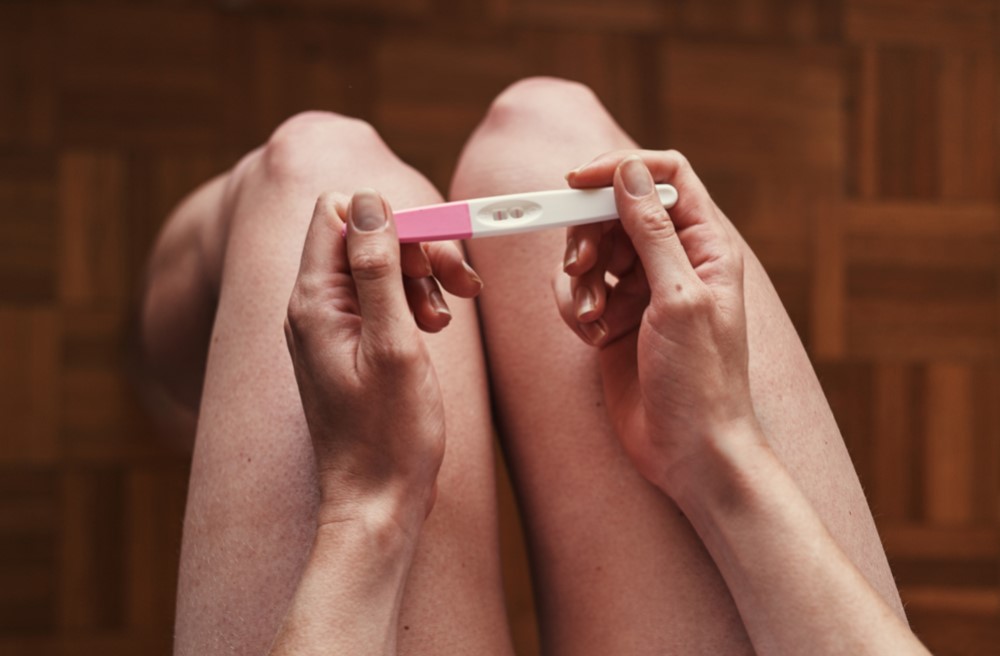Have you been feeling off lately? Do you have some suspicions that you might be pregnant? While a pregnancy test and ultrasound can certainly confirm whether or not you’re pregnant, some early signs and symptoms may also indicate that a change is happening to your body.
But what exactly are those changes? To know what early pregnancy symptoms look like, we’ll be going over the common signs that many women go through.
When Do Early Pregnancy Symptoms Start?
Some women may experience early pregnancy symptoms before they miss their period, and some symptoms can come as soon as a few days after contraception. They may notice a sensitivity to smell, nausea, fatigue, or develop swollen breasts; they are the most common signs in the beginning. Spotting and frequent urination are some indicators that you may be pregnant.
However, everyone is different, and sometimes early signs of pregnancy might appear right away, and other symptoms might take a few weeks to develop. Some women may not feel any early pregnancy symptoms at all, whereas others may deal with multiple symptoms at once.
If you have missed your period and notice that you’re dealing with some early signs of pregnancy, you should take a pregnancy test. Our clinic offers free medical-grade pregnancy tests for your convenience. We also offer point-of-care ultrasounds to pregnant women, providing information about their pregnancy during the first and second trimester.
Common Signs of Early Pregnancy
As we mentioned, pregnancy symptoms may vary between women. While you shouldn’t compare your pregnancy to someone else’s, there are early signs and symptoms that you can look out for.
A Missed Period
The most common symptom that often solidifies whether or not someone is suspecting pregnancy is a missed period. When conception has happened, the body produces specific hormones that stop ovulation and the shedding of the uterine lining. When that happens, your cycle has stopped, and you won’t experience another period until after the baby is born.
It’s important to know that just because you miss a period, it doesn’t always mean for sure that you’re pregnant. Various factors can influence a missed period or make your period come late, such as stress, hormone imbalances from birth control, and dieting. If you’ve missed a period, the best way to confirm it is through a pregnancy test.
Implantation Bleeding
Within the first few weeks of pregnancy, cramping and spotting (also known as implantation bleeding) may be experienced. Implantation bleeding is often mistaken for a light period, but it’s the result of the fertilized egg attaching to the uterine lining.
Implantation bleeding can occur seven days after contraception and will look like small drops of red or brown discharge. The light bleeding can start around the time of your usual period and last anywhere between a few days and a few weeks. In many cases, mild cramping can follow after spotting.
Increased Basal Body Temperature
When pregnant, a woman’s basal body temperature may increase and serve as an indicator of pregnancy. After ovulation, their body temperature will rise slightly. Some individuals track the body’s temperature during the menstrual cycle to help determine a pattern of when a woman is likely to ovulate. A basal body temperature that remains elevated for 2 weeks after ovulation may be an early symptom of pregnancy.
Frequent Urinating
A common pregnancy symptom that women notice is frequent urination. The first few weeks after conception is when most women notice their increased need to urinate. Your new pregnancy hormones increase the blood flow to the kidneys, which causes them to produce more fluid than usual. Because of the amount of fluid your kidneys are producing, you’ll find your bladder filling up faster. In some cases, the rate at which your bladder fills may be hard to control, and the occasional accident may happen.
Breast Tenderness
Many women will experience breast tenderness as one of the early pregnancy symptoms, thanks to their estrogen and progesterone levels. During this change, the breasts will often appear swollen with darkened areolas.
Breast changes are the body’s way of preparing them for the process of feeding the baby once it’s born. The change may occur between weeks 4 and 6 of your pregnancy. You may not experience any more tenderness once your body has adjusted to the hormonal changes.
Fatigue
One of the earliest signs of pregnancy is fatigue. According to the American Pregnancy Association, the hormone progesterone will increase during pregnancy and make you sleepier than usual. For some, fatigue may lessen during the second trimester, but there are cases in which women feel exhausted for the entire pregnancy.
Morning Sickness
Around weeks 4 to 6, many women begin to experience nausea and morning sickness. This is often a telltale sign for most women. During early pregnancy, raised levels of progesterone, estrogen, and HCG (human chorionic gonadotropin) can cause nausea.
Nausea can lead to the feeling of seasickness that women report feeling during pregnancy. The increased hormones can also cause the stomach to slowly empty, which leads to vomiting. While it’s called “morning sickness”, it can occur throughout the day at any time.
Excessive Bloating
Bloating is an early pregnancy symptom that is one of the more physical indicators of pregnancy. Some women may find difficulty distinguishing the difference between pre-period bloating and pregnancy bloating. Progesterone slows digestion to ensure that the nutrients you’ve eaten have more time to enter your bloodstream and work their way toward your baby.
Food Aversions
Your sense of smell plays a part in one of the early pregnancy symptoms known as food aversions. During this symptom, the smell, sight, or thought of certain foods may cause a sickening feeling, even if they’re foods you love. In some cases, it can contribute to the issues of morning sickness.
This symptom pops up during the first trimester and is a result of the hormone changes in the body. Food aversions often dissipate during the second trimester once the hormones have settled.
Mood Swings
Due to your hormones, you may experience mood swings later in the first trimester and throughout the pregnancy. During mood swings, you may feel happy one moment and sad the next. It’s important to remember that changes in your mood are quite common during pregnancy and are nothing to worry about. Try to get as much sleep as possible, eat well, and give yourself some much-deserved breaks. If feelings of sadness or depression are long-lasting, consistent, or affecting activities of daily life, speak to your health care provider about how you’re feeling to determine the steps to help you feel better.
When Should You Take a Pregnancy Test?
If you’re experiencing any of the listed symptoms of early pregnancy, you should take a pregnancy test one week after you first missed your period. Pregnancy tests are most accurate when used properly, so it’s integral that you use it at the right time.
If you think you might be pregnant and you could use some help, the knowledgeable and caring nurses at Atwell Centre are here for you. They can provide free medical-grade pregnancy tests, pregnancy confirmation through point-of-care ultrasound, and many other pregnancy-related services. For more information, contact our Hamilton or Halton clinic today and receive the best care possible.

